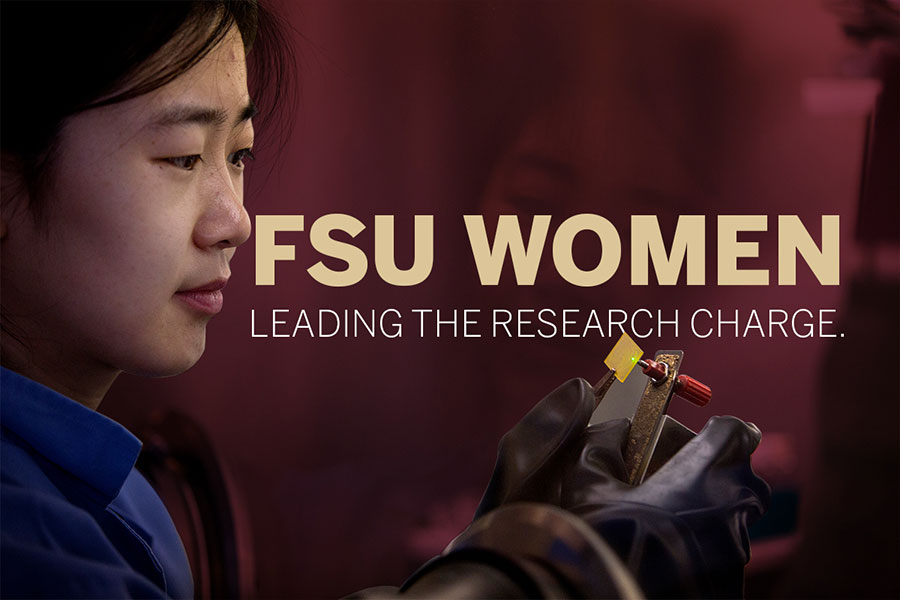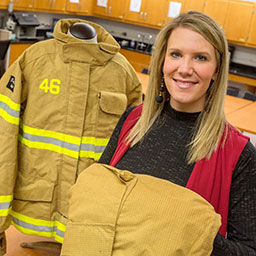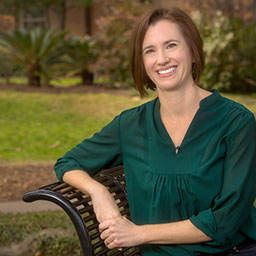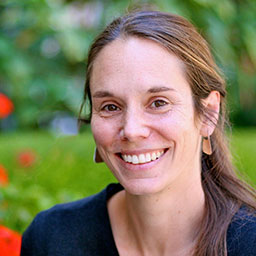
Women’s History Month, celebrated every March in the United States, provides schools, workplaces and communities around the country the opportunity to recognize and celebrate the extraordinary contributions of American women to our society.
At Florida State University, those contributions are on full display.
Over the past year, FSU women have conducted breakthrough research with the potential to change lives locally, statewide and around the world. Their findings have yielded crucial new tools for aiding and educating children with hearing loss, revealed promising clues about the future of infant mortality, outlined innovative strategies for better protecting our nation’s first responders and so much more.
Women at Florida State University are producing research that will define the futures of their fields — and the world is taking notice. It’s thanks in part to their leadership that FSU is shattering research funding records, steadily climbing the national rankings and driving the global conversation on issues ranging from heart failure to Etruscan archaeology.
The creativity and dynamism demonstrated by the women of FSU is helping the university to change the world. Below are a few of the countless examples of their exceptional work.

Jessica Ribeiro, an assistant professor in the Department of Psychology, led a groundbreaking project that made significant advancements in suicide prediction using machine learning algorithms. Her system, outlined in a study published in the journal Clinical Psychological Science, was found to predict suicide attempts with 80-90 percent accuracy as far as two years in the future.
“This study provides evidence that we can predict suicide attempts accurately,” Ribeiro said. “We can predict them accurately over time, but we’re best at predicting them closer to the event. We also know, based on this study, that risk factors — how they work and how important they are — also change over time.”

Joedrecka S. Brown Speights, associate professor in the College of Medicine, published research in the American Journal of Public Health reporting that 18 states are on track to eliminate racial disparities in infant mortality by the year 2050. Her study projects that more than 4,000 babies a year could be saved by eliminating disparities that persistently afflict black newborns nationwide.
“Racial equality in infant survival is achievable,” Brown Speights said. “But more needs to be done if we want to see it in our lifetimes.”

Yi Ren, professor in the College of Medicine, received an $800,000 grant from the National Science Foundation to study the immune response to traumatic spinal cord injuries. Ren and her team will investigate the crucial period immediately following a severe spinal cord injury, when the immune system floods the affected area with macrophages — white blood cells built to clear out harmful material.
“‘Killer’ macrophages secrete a lot of inflammatory substances and molecules that participate in tissue damage,” Ren said. “We think this is one of the reasons for secondary injury, so now we’d like to target it.”

Elena Reyes, professor and regional director for the College of Medicine in Southwest Florida, is leading a $3 million project aimed at developing effective interventions for children from rural and migrant farm-working families experiencing toxic stress. Research shows that children exposed to adverse experiences without a buffer have increased frequencies of mental, physical and social problems during childhood and later in life.
“Migratory lifestyles, poverty and overall consistent exposure to trauma — all are contributing factors,” Reyes said. “The parents are facing the same level of stress themselves, including depression, problems related to socioeconomic status, their own history of trauma and barriers to health care. They’re not able to provide the protective buffer needed by these young children.”

Meredith McQuerry, assistant professor in the Jim Moran School of Entrepreneurship, underscored the need for next-generation firefighting suits that prevent burn injuries while also reducing the likelihood of heat stroke, exhaustion and cardiac arrest — all common among firefighters wearing bulkier, layered materials. Her study was published in The Journal of the Textile Institute.
“Clothing manufacturers have worked to improve burn protection by bulking up firefighting suits, but more attention should be paid toward optimizing the balance between protection and physiological comfort,” she said.

Erin Ingvalson, an assistant professor in the College of Communication and Information, was part of an international team that used brain scans and machine learning to predict speech perception progress among deaf children with cochlear implants. Their study, published in the Proceedings of the National Academy of Sciences, could set the stage for a revolutionary new tool.
“We want to develop a measure that clinicians can use to identify which children will need more speech-language support after they get their cochlear implant,” she said. “That kind of tool would allow us to intervene with focused therapy that increases their ability to learn language.”

Sarah Lester, an assistant professor in the Department of Geography, led a team of researchers that devised a comprehensive model for sustainable spatial planning in crowded ocean areas. Her model, described in an article in Nature Communications, could help unlock a new era of sustainable, harmonious ocean industry expansion.
“In the past, we haven’t always maximized the benefits we get from the oceans, nor have we done a good enough job protecting vulnerable ocean ecosystems,” she said. “We wanted to ask the question: How can we come up with analytical approaches that allow us to make better decisions about what happens where?”




